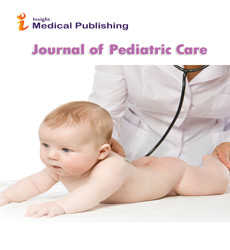Abstract
Immediate Newborn Care Practice and Associated Factors among Health Care Providers in Arba Minch Town Governmental Health Institutions of Southern Ethiopia : Facility Based Cross-Sectional Study
Globally under-five and infant mortality rates had declined over the past four decades, but high neonatal mortality rates had remained relatively unchanged. Neonatal death account for 43% of under-five child deaths globally and account for 42% of under- five mortality in Ethiopia. And this mortality is related to immediate obstetric and newborn care of babies provided by health provider’s related to immediate newborn care and their Study was help cost effective because benefits family members from the medical expense, saving the life of a newborn baby, as a source of information health professionals, health programmers, researchers and policy makers. Objectives: To assess, the status of immediate newborn care practice and associated factors among health providers in Arba Minch Town public health facility, SNNPR. Methods: Institution based Cross-sectional study design was conducted to assess the status of newborn care practice provided by health professionals in selected Arba Minch Town. The samples (195 health professionals) were allocated proportionally to hospital and health centers of selected Arba Minch Town and finally, selected by simple random method. Then the data was entered Epi data version 4.4.2.1 and analyzed by using SPSS statistical soft-ware version.20. Finally, the result was displayed on text, graph and tables. Result: The response rate were 100% and more than half of respondents 116(59.5%) of the respondents was good knowledge newborn care step whereas 35(17.9%) poor knowledge and the rest 44(22.6%) have not knowledge. The majority of assessed health facilities have not fulfilled necessary equipment. The overall newborn care practice among health professionals was not good as the majority of health professionals 148(75.9% of participants) misses one or more steps of essential newborn care practice. Most of the health professionals had a good knowledge about newborn care (i.e. 87(44.6%), a fair knowledge has 62 (31.8%), whereas 46(23.6%) of health professionals had poor knowledge (scored below the mean). Factors, like work place 99.5%, supportive supervision [AOR 7.485, 95% CI (1.1.933, 28.991)], training status [AOR 33.511, 95% CI (1.769, 634.834)], and knowing danger sign of the newborn [AOR 0.097, 95% CI (0.02, 0.44)] are significantly associated with newborn care practice. Conclusion and Recommendation: Most of health professionals’ newborn care practice were not good 148(75.9%), the majority of them had a good knowledge, and the majority of the assessed facilities have not full filled necessary equipment. Training and supervision was not adequate. So it is necessary to strengthen in-service training, supportive supervision.
https://maviyolculuk.online/
https://mavitur.online/
https://marmaristeknekirala.com.tr
https://tekneturumarmaris.com.tr
https://bodrumteknekirala.com.tr
https://gocekteknekirala.com.tr
https://fethiyeteknekirala.com.tr
Author(s):
Sofiya Bushera
Abstract | Full-Text | PDF
Share this

Google scholar citation report
Citations : 130
Journal of Pediatric Care received 130 citations as per google scholar report
Abstracted/Indexed in
- Google Scholar
- China National Knowledge Infrastructure (CNKI)
- Cosmos IF
- WorldCat
- Geneva Foundation for Medical Education and Research
- Secret Search Engine Labs
Open Access Journals
- Aquaculture & Veterinary Science
- Chemistry & Chemical Sciences
- Clinical Sciences
- Engineering
- General Science
- Genetics & Molecular Biology
- Health Care & Nursing
- Immunology & Microbiology
- Materials Science
- Mathematics & Physics
- Medical Sciences
- Neurology & Psychiatry
- Oncology & Cancer Science
- Pharmaceutical Sciences

